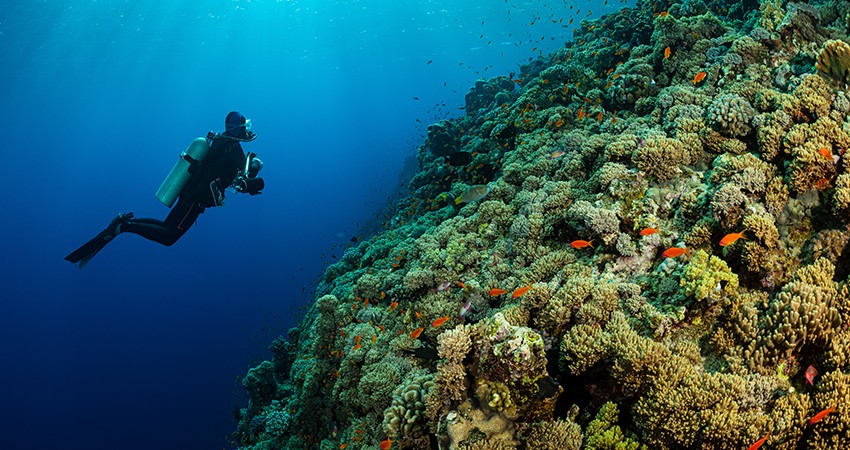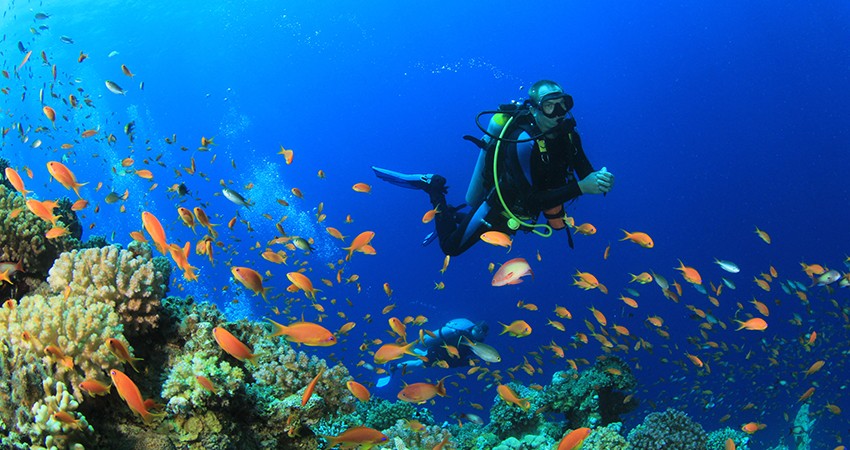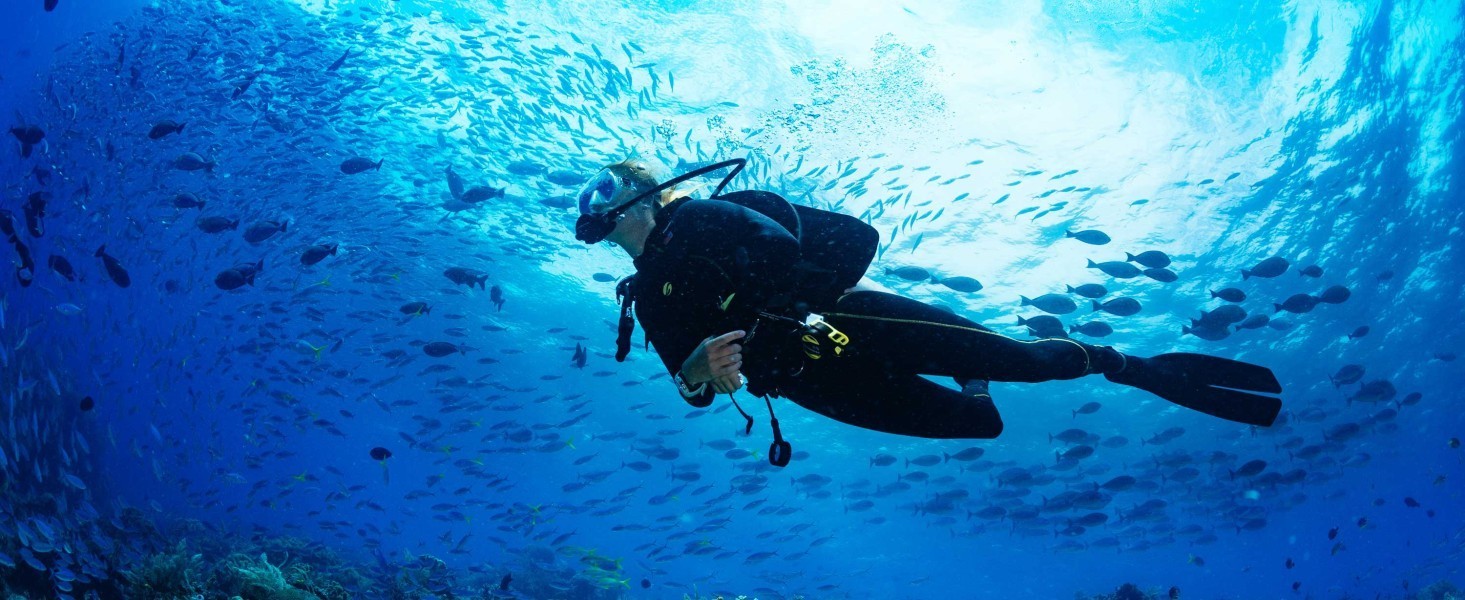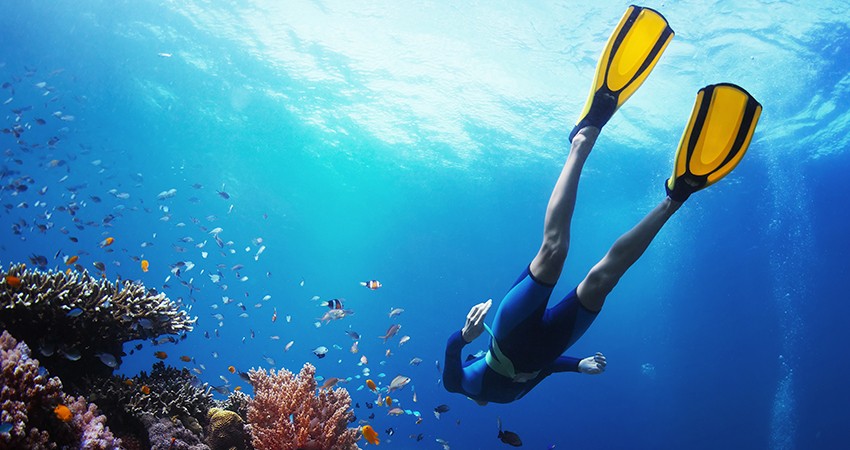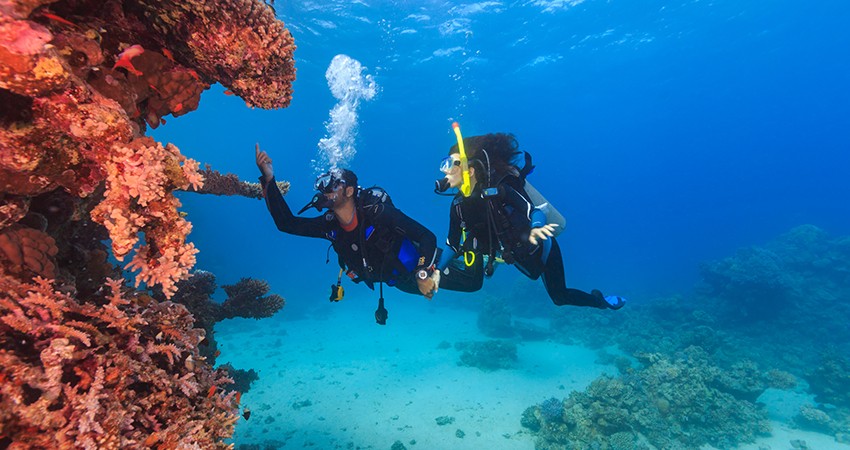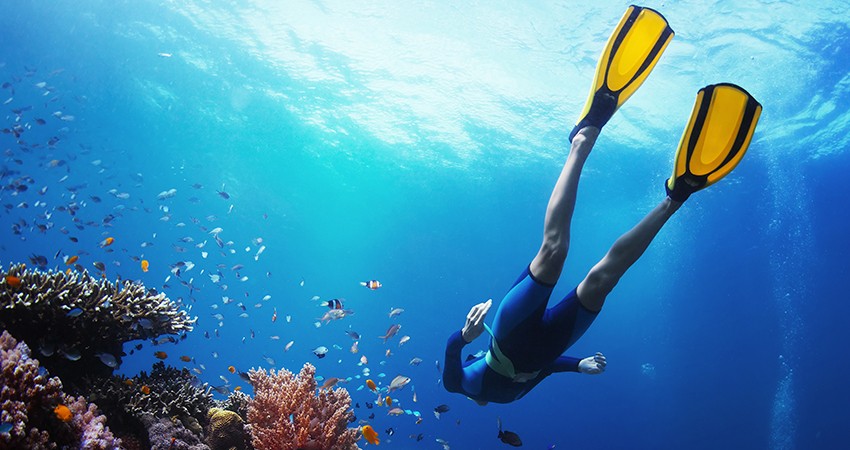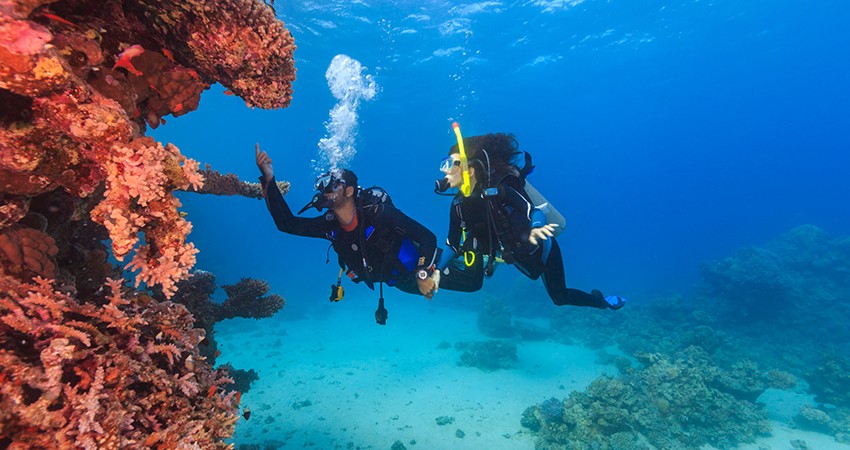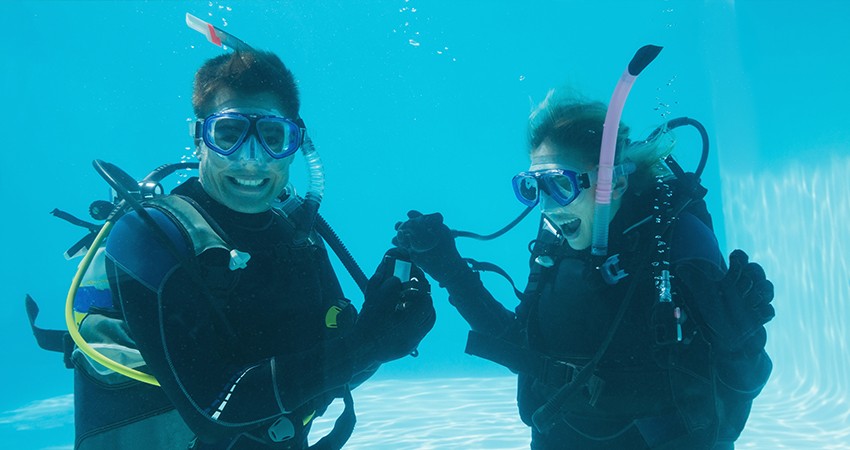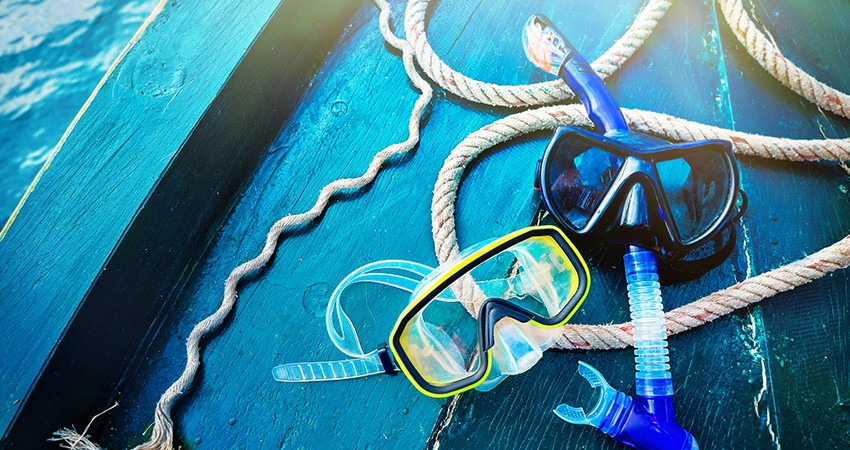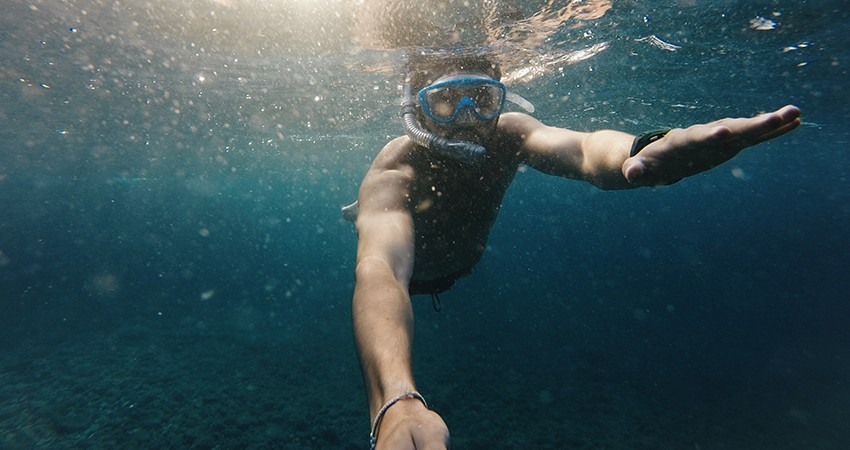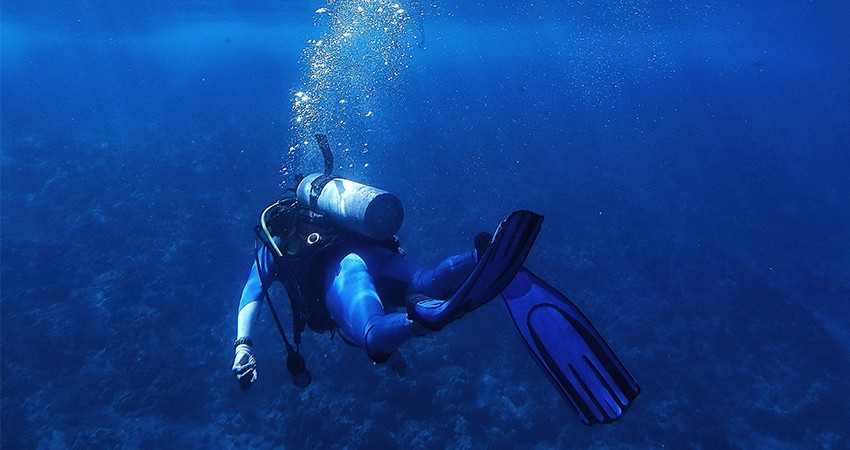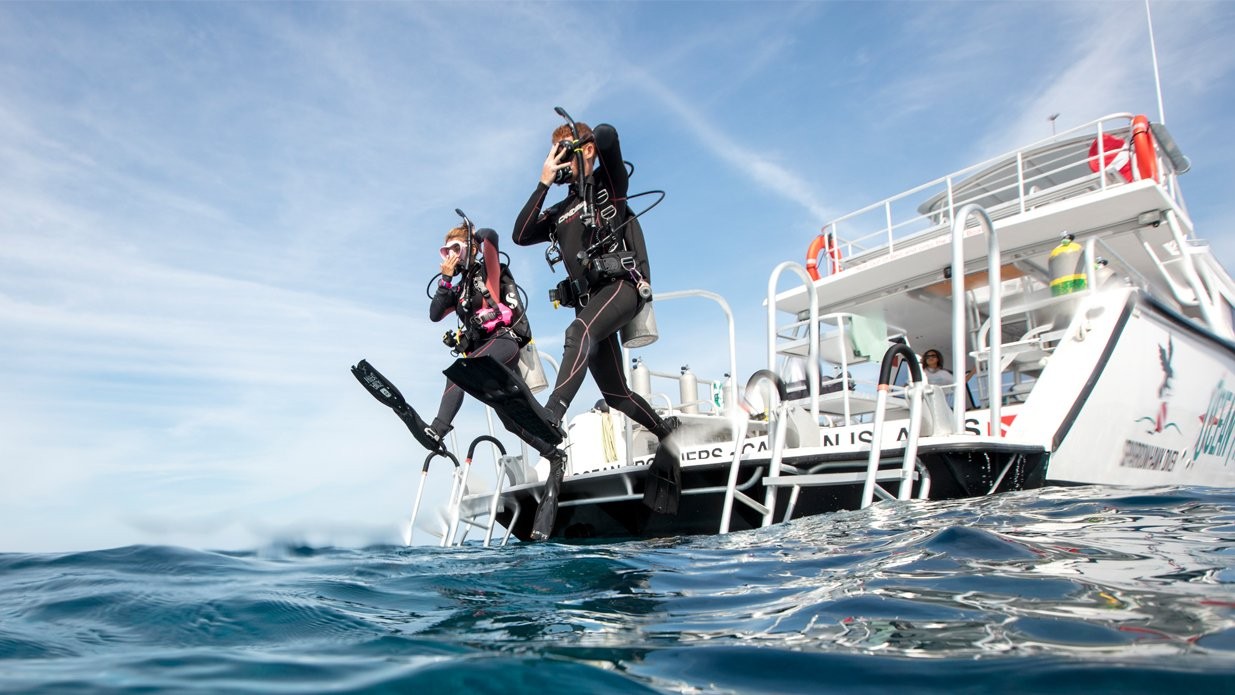Diving Sites in Port Blair



PADI Scuba Diving Courses for Divers and Professionals
The soothing and sunny vibes of the Andaman Islands tempt travellers to come here from all over the world. This union territory of India mesmerises everyone with its oozing natural beauty. It is also a popular honeymoon destination and there are a number of gorgeous beaches where you can spend some quality time with your partner. If you want to have a rejuvenating holiday in India, then pick the Andamans as it is popular for its sunny skies, white sand beaches, turquoise waters, and untouched surroundings. However, the flawless beauty of its islands is not the only thing that makes this destination a heavenly abode on earth. Enthralling adventure sports and water activities also make your Andaman vacation unforgettable.
Ranging from underwater sea walking to a fun-filled banana boat ride and from jungle trekking to peaceful golden beaches, the Andaman Islands have everything. If you want to explore the exclusive marine life comprising some of the rarest corals and fascinating fish, then try snorkelling. One can also witness the Bioluminescence in Havelock Island (now known as Swaraj Dweep officially). It is a breathtaking experience in which water glows as you row the boat across. Definitely an unforgettable natural phenomenon. But if you are interested in discovering the colourful corals and the splendid water life deep under the waves, then you should scuba dive in the Andaman Islands, India.
One of the best things to do in the Andaman Islands is scuba diving. After you are done lazing on its gorgeous beaches and trying authentic seafood delicacies, go to a PADI shop and book your dive. It is operational during a major part of the year. You can witness incredible aquatic life including vibrant fishes, colourful corals, and seabed gardens in its cobalt waters. It is one of the best experiences that one can have in their life. For most people, diving once is not enough. They want to do it again and again.
There is an entire world inside the sea that is waiting to be explored by you. It’s like magic that will leave you spellbound and awestruck with its charm. There are untouched corals and vibrant fishes that sometimes surround the diver from all directions. It can leave anyone in wonder and awe. Thanks to the Andaman Administration for its efforts in maintaining a healthy marine world. There are underwater coastal belts enveloping the Andamans that are home to extremely dense ecosystems of coral reefs. Long stretches of reefs, usually several hundred meters wide, enclose most of the islands. These are separated by the shore with shallow waters.
If you are a professional scuba diver, then the Andaman Islands are the most sought-after destination for you. Its unique topography lets you explore the most amazing marine life. There are sites that are ideal for expert scuba divers. There are a number of speciality dive courses for divers and professionals in Havelock Island, Andaman & Nicobar Islands. You can choose from them as per your convenience and preference.
Feel Your
Dive Experience
Dive Experience
Frequently Asked Questions
-
Q. 1 : Which speciality dive courses are available for divers and professionals in the Andaman Islands?
If you are a professional scuba diver, then you have a number of choices to pursue your diving education and experience. The following speciality dive courses are offered in the Andamans:
- Wreck Dive Specialty for 1 Dive in Havelock Island
- Drift Dive Specialty for 1 Dive in Havelock Island
- Underwater Naturalist Specialty for 1 Dive in Havelock Island
- Underwater Navigation Specialty for 1 Dive in Havelock Island
- PADI Underwater Photography Specialty Course in Port Blair
- PADI Peak Performance Buoyancy Specialty Course in Port Blair
- PADI Night Diver Specialty Course in Port Blair
- Project Aware Specialty in Port Blair
- Deep Dive Specialty in Neil Island
- Boat Dive Specialty in Neil Island
- O2 Provider Specialty in Neil Island
-
Q. 2 : Which speciality dive courses are available for divers and professionals in Havelock Island (Swaraj Dweep)?
Answer: The following speciality dive courses are available for divers and professionals in Havelock Island:
- Wreck Dive Specialty for 1 Dive in Havelock Island
- Drift Dive Specialty for 1 Dive in Havelock Island
- Underwater Naturalist Specialty for 1 Dive in Havelock Island
- Underwater Navigation Specialty for 1 Dive in Havelock Island
-
Q. 3 : Which speciality dive courses are available for divers and professionals in Neil Island (Shaheed Dweep)?
Answer: The following speciality dive courses are available for divers and professionals in Neil Island:
- Deep Dive Specialty in Neil Island
- Boat Dive Specialty in Neil Island
- O2 Provider Specialty in Neil Island
-
Q. 4 : Are there any speciality dive courses available for divers and professionals in Port Blair?
Answer: Yes, there are speciality dive courses for professionals in the capital town as well. One can pick from the following options:
- PADI Underwater Photography Specialty Course in Port Blair
- PADI Peak Performance Buoyancy Specialty Course in Port Blair
- PADI Night Diver Specialty Course in Port Blair
- Project Aware Specialty in Port Blair
-
Q. 5 : How is the overall experience of the wreck dive?
Answer: Wrecks are fascinating windows to the past. Whether lost due to an accident or purpose-sunk as an artificial reef for scuba divers, wrecks have a unique appeal for sure. It is fascinating to explore ships, aeroplanes, and cars. They usually teem with aquatic life. A chance of discovery, potentially unlocking a mystery or spying on something other divers have missed is offered by each wreck. If you also want to explore a wreck under the water, then first take this PADI Wreck Diver Speciality course as it will give you rewarding diving adventures while you are observing responsible wreck diving practices.
-
Q. 6 : Can I go drift diving in Havelock Island?
Answer: If you want to feel like flying underwater, then dive in a current in Havelock Island! In the PADI Drift Diver course, our experienced instructor will teach you drift diving tips. You will be practising buoyancy control, navigation, use of surface signalling equipment, and buddy communication. Drift diving is all about gliding with currents, feeling the rush of flying underwater, and watching fish moving up the current effortlessly. There will be one dive in this course and the duration of the entire experience will be around three hours. You will be exposing yourself to the techniques and procedures for drift diving.
-
Q. 7 : Why is underwater naturalist speciality dive crucial for a diver?
Answer: At some point, a scuba diver needs to have a better understanding of the local ecosystem along with the differences between aquatic and terrestrial worlds. With this, you will be able to see new things even in the most common and familiar dive sites. By taking the PADI Underwater Naturalist Speciality course, you will spot new things even in the most usual scuba diving sites. You will be able to notice behaviours and spot creatures that you may have missed earlier as by taking this diving course, you will know more about symbioses, underwater ecology, as well as aquatic plant and animal habitats. The PADI course will let you learn about the local ecosystem and take a closer look into the incredible underwater world.
-
Q. 8 : Where can I go for the peak performance buoyancy speciality in the Andaman Islands?
Answer: Do you know what defines a skilled scuba diver? The answer is ‘Excellent Buoyancy Control’. You must have seen them underwater vis documentaries or something. How effortlessly they glide, use less air and ascend/descend, and hover so smoothly! They are able to observe marine life more easily and also without disturbing the surroundings. You can achieve this too by taking the PADI Peak Performance Buoyancy Specialty course in Port Blair. It will improve your buoyancy skills and elevate them to the next level as well. PADI (Junior) Open Water Divers or higher, who are at least ten years old, are eligible to take the Peak Performance Buoyancy course.
-
Q. 9 : How is the PADI night diver speciality course in Port Blair?
Answer: Going below the surface at night seems mysterious as well as alluring! You may have scuba dived many times before, but diving at night means exploring a whole new world. Watching the marine world come to life under the glow of your dive light is definitely an extraordinary experience. The entire scene changes as day creatures retire and nocturnal organisms emerge. How interesting is that! If you want to see what happens under the waves after the sun goes down, then take the PADI Night Diver speciality course in the capital of the Andaman Islands.
-
Q. 10 : What is the Project Aware Specialty course?
Answer: The Project AWARE Specialist is basically uniting divers and water enthusiasts to make a difference. This certification will help you learn how you can make a difference in ocean protection whenever you scuba dive or travel. Aimed at ocean protection, the PADI Project AWARE Speciality course is an introduction to the global AWARE movement.
-
Q. 11 : I have watched in the movies and on television that scuba divers encounter eels or sharks. Are marine animals so dangerous in the Andamans?
Answer: Most aquatic animals are passive or timid. Only a few bite or sting. You should avoid them by not touching them at all. For sharks, divers are not natural prey and thus shark attacks are rare. Experienced scuba divers actually seek out shark encounters.
-
Q. 12 : Is scuba diving in the Andaman Islands dangerous?
Answer: Scuba diving in the Andamans is not dangerous. However, there are potential hazards. That’s why proper training and certification are required.
-
Q. 13 : Which medical conditions hamper scuba diving?
Answer: If you have a medical condition due to which your respiratory or cardiovascular systems are affected, or that renders you suddenly and unexpectedly unable to respond quickly or at all, then you cannot scuba dive. Asthma, epilepsy, diabetes, and heart disease are some of the common contraindications. You should consult a doctor first in case you have any of these or other illnesses, which might cause similar problems. People with the following conditions should not scuba dive:
- People with breathing problems
- People with ear problems or people who have had ear surgery in the last 1 year
- People having cold, flu, or congestion. Those with a cold should take decongestion medication in order to dive. Otherwise, they may face problems while ascending to the surface.
Other reasons you may be asked to see a doctor include (but are not limited to) the following:
- Shortness of breath
- A history of heart or lung disease
- A recent history of nausea or vomiting
- An unexplained loss of consciousness or “blackout”
- Repeated trouble clearing air spaces (equalisation)
- The use of prescription or non-prescription medications
-
Q. 14 : Will my ears hurt during scuba diving?
Answer: The ears hurt because of the water pressure on your eardrum. While taking a scuba diving course, you will be learning east techniques to equalise your ears to the surrounding pressure, somehow similar to when you land after a flight.
-
Q. 15 : I need vision correction. Is that a problem while diving?
Answer: While scuba diving, wearing soft contact lenses shouldn’t be a problem. But if you wear hard contacts, then you will be required to dive with gas-permeable lenses. Talk to your eye doctor for more details. Putting prescription lenses into your mask is another option.
-
Q. 16 : What are some of the most important things to keep in mind before scuba diving?
Answer: Always keep in mind the following things before scuba diving in the Andaman Islands:
- Never drink before diving- A diver can be put in a compromised position if he/she is intoxicated. You may face the inability to use common sense and make rational judgments. Never compromise your safety.
- Don’t eat a heavy meal before diving- Wait at least 2 hours after eating before you make your dive. It is risky to dive on a full belly. It may create the possibility of acquiring cramps. You may also face upchucking in your mouthpiece which would make it difficult for you to breathe.
- Never hide any serious or chronic medical conditions from your instructor.
-
Q. 17 : What is the PADI Enriched Air (Nitrox) Diver Course all about?
Answer: There is less nitrogen than regular air in enriched air, also known as nitrox or EANx. Breathing less nitrogen means you can enjoy longer dives and shorter surface intervals. Enriched Air Diver is one of the most popular PADI specialities. Taking this course will teach you why nitrox allows you to make longer dives along with how you can dive nitrox safely with the help of online independent study. You will also meet your PADI instructor for hands-on practical exercises and two (optional) dives.
Enrol in Enriched Air (Nitrox) Diver if you want to do the following:
- Get nitrox air fills
- Stay at depth longer
- Enjoy shorter surface intervals
You will learn how to do the following:
- Dive with nitrox
- Set your dive computer
- Use an oxygen air analyzer
-
Q. 18 : What are the medical requirements for the PADI Deep Diver course?
Answer: A minimum level of health and fitness is required for scuba diving. In case you are suffering from any chronic health condition, or taking certain medications and/or had surgery recently, you will have to get written approval from a physician before diving. In order to avoid any confusion, you can simply download and review the Diver Medical Form to make sure that you will not require approval from a physician to dive. You should not ask your instructor, dive master, or dive shop staff for medical advice as they are not physicians.
-
Q. 19 : What are the costs & equipment involved in the PADI Night Diver course?
Answer: The PADI Night Diver course comprises knowledge development as well as in-water training for certification. Only the knowledge development part is covered in the cost when you purchase PADI eLearning online. There is an additional cost involved in the certification with the PADI instructor. The cost varies on the basis of the class size, environment, and whether or not you need to rent equipment. You can contact Dive Andaman, a 5-star PADI center in Havelock Island (Swaraj Dweep), for more information and pricing. Along with the scuba gear, you will also need the following:
- A primary and backup dive light (torch)
- Additional exposure protection like a thicker wetsuit, hood or gloves, for staying comfortable while night diving
Diving Sites in Port Blair
Diving Sites in Havelock Island
Diving Sites in Neil Island
